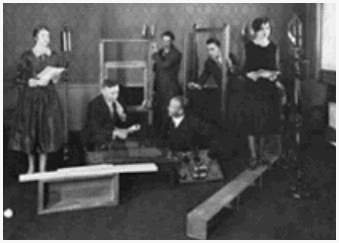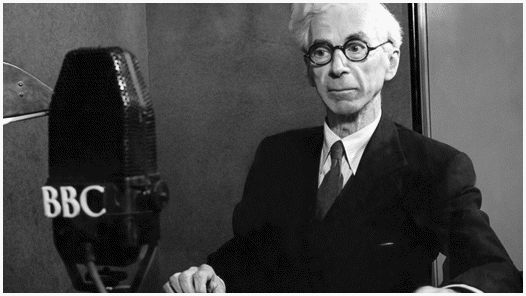
They will cluster towards it. Two minutes. The test-tone will be sounded. India is listening now. Australia. New Zealand. Places where it is night-time or sweltering noon. Storm-beaten islands. Ships. And some will never have heard a play in the whole of their lives. Houseboys in Rhodesia, sweating farmhands in the outback, shopkeepers in frazzled Shanghai. And if millions will turn the dial, uninterested, seeking elsewhere, through the crackling susurration and interplanetary shrillings, perhaps somewhere a child will not. Awesome, the power. You could not afford to think of it. She will touch a colleague's wrist as the countdown to the five pips commences. "Be calm," will say her smile. "Trust your lines. That is all." This is the BBC World Service broadcasting from London. Greenwich Mean Time is eighteen hundred hours. Welcome to the Monday Play. And someone will start to speak. And another. And another. And the words will come out of the air.
 Beamed by Hilversum, Lille, Luxembourg, Allouis, Athlone, Droitwich, Warsaw, Moscow. And perhaps there is an otherworld only radio waves can attain, where the dead are listening quietly together. Her son, her two husbands, the man in the photograph on the mantelshelf, her brothers, her mother, Yeats, her sister. The brave, broken boys who died in the war. The murdered of Auschwitz-Birkenau. Memory is their oxygen, megahertz their rain. Their country has no currency or flag. The aurora borealis is their national anthem, for they are able to hear colours, touch sounds. Their flicker-lit eyes see no blitzes, no firestorms. Their language needs no word for torture. A foolish idea, maybe; but perhaps it is true. We believe in Wuthering Heights despite knowing it is fictional. Heathcliff and Lazarus and Ophelia and the Snow Queen feature equally in whatever scripture she holds precious. And if some play only a bit-part, they also serve. To all things, a season. Nobody is nothing.
Beamed by Hilversum, Lille, Luxembourg, Allouis, Athlone, Droitwich, Warsaw, Moscow. And perhaps there is an otherworld only radio waves can attain, where the dead are listening quietly together. Her son, her two husbands, the man in the photograph on the mantelshelf, her brothers, her mother, Yeats, her sister. The brave, broken boys who died in the war. The murdered of Auschwitz-Birkenau. Memory is their oxygen, megahertz their rain. Their country has no currency or flag. The aurora borealis is their national anthem, for they are able to hear colours, touch sounds. Their flicker-lit eyes see no blitzes, no firestorms. Their language needs no word for torture. A foolish idea, maybe; but perhaps it is true. We believe in Wuthering Heights despite knowing it is fictional. Heathcliff and Lazarus and Ophelia and the Snow Queen feature equally in whatever scripture she holds precious. And if some play only a bit-part, they also serve. To all things, a season. Nobody is nothing.
Joseph O'Connor
© 2010 Farrar, Straus & Giroux